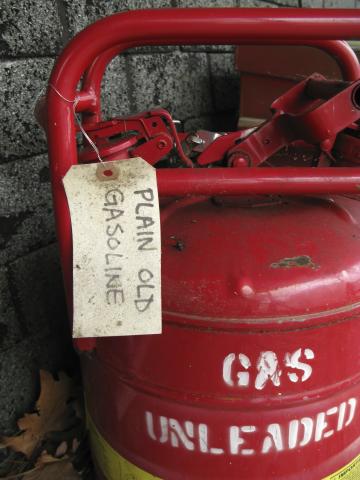
Everyone has their opinions on fuel, whether it’s using premium/high octane, tossing in performance additives or running on E85 because of the cost. Over the years, using something other than the traditional gasoline, including diesel, propane or compressed natural gas (CNG), has grown in popularity. We’ll stick with gasoline here for argument’s sake.
We don’t have a choice on leaded vs. unleaded gas these days, save for specific additives designed to properly lubricate older engines. We do have options on octane rating, ethanol content and high-performance additives.
I know some swear by using the highest octane available, no matter the vehicle, but do you notice any difference? Unless run in a higher compression engine, high octane fuel has little to no measurable performance effect, other than a negative one on your wallet. Do you use it for a cleaner engine, or hoping to prolong engine life?
We know using low octane fuel in a high-performance engine can cause a lag in horsepower, drop in performance and engine knock, but it doesn’t go the other way. Using high octane fuel won’t add horsepower for any engine. Then again, there is something to be said about the placebo effect – if you think it improves performance, then it does. Are the raw numbers as important as how it feels, performance-wise?
One thing nobody can debate is the harm E85 ethanol can do to an engine not designed for its use. Similar to the early 70’s when we made the transition from leaded to unleaded gas, changing the fuel meant changes to the engine and its internal components. Many vehicles can run on E85, but the vast majority of your smaller engines, from motorcycles to snowmobiles to lawnmowers and string trimmers, have not been engineered to run on E85.
What drives your fuel selection? Do you always buy the same thing, midgrade for all the toys and regular for the car, or does it vary based on individual engine?



